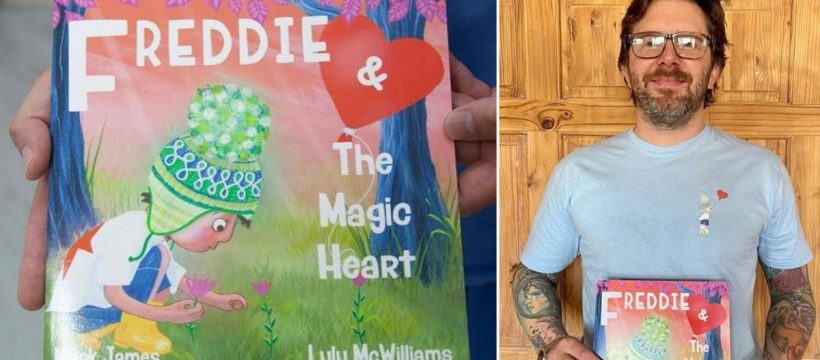
For every person who sadly loses their life, the donation of their organs can save up to eight people on the transplant list.
But what ICU and organ donation nurse Mark Ainscough, 44, has found is that, even when one person’s wishes are clearly in favour of donating their organs, family members often can’t bring themselves to do it.
Though England’s law changed to an ‘opt out’ system in 2020, family members are still consulted before any organs are removed.
Mark tells Metro.co.uk about that moment where families have to make that call.
He says: ‘At that point emotions are so high that you get a lot of families who say “even though our loved one wanted to be a donor I just can’t face it”.
‘It’s such a big shock they say they aren’t going to do it and then it ends up becoming a missed opportunity. We respect that, but it’s upsetting because we could’ve saved someone.
‘There’s 7,000 people at any one time waiting for an organ in this country and that’s a lot of people waiting for a phone call that could save their lives.’

So, at a time when Covid had the world in its grip, and tending to ICU patients felt more like palliative care, Mark sat down in a rare moment alone and wrote a children’s book, Freddie and the Magic Heart, with the aim of educating children about organ donation.
In fact, he wrote it in just two hours and spent the next day or so ‘polishing it’.
The story is about a young boy called Freddie who’s mother is very ill. Freddie’s dad tells him how his mum can still help someone by donating her heart.
Mark says: ‘I just felt strongly that I wanted to write it down and see if it could be useful for someone.
‘I wrote it with a certain scenario in mind, and that’s me being the ICU nurse and having a family who are at the point where their loved one isn’t going to survive.
‘I then say “but there is something that can come of this and that’s organ donation – we can help someone else to live”.’
If her heart can help someone, then I think you should take it.
Mark surprised himself by writing it so quickly but says that while he liked it, he wasn’t 100% sure others would too.
Mark admits: ‘I re-read it and thought I really like this so that’s when I decided to put it out there and let someone else see what they thought of it.
‘Until someone reads it a lot of people probably think they’ve written the best thing ever, until someone else says “mmm maybe not”.
But, he sent a copy to someone at NHS Blood and Transplant and they got in contact with him agreeing it should be made into a book. Then, says Mark, ‘two and a half years later it was a reality’.
‘I got a lot of encouragement so then I started to believe maybe this could be a children’s book and something that could make a difference to people,’ he adds.
As a father himself to three children at the time – Beth (23), Carly (18), and Robin (3) – whom he parents with his wife Toni, Mark knew the importance of helping kids understand the process.

He’s also since welcomed baby Phoebe with his wife who is now three-months-old – and while it’s a joyous time, things weren’t always easy for Mark.
He had been struggling with depression in the period before he wrote the book, having lost his mother barely a year after Robin was born – struggles which were exacerbated with the pressures of nursing and the pandemic.
But, after the response to the book from the nursing community, Mark says he is ‘really pleased’ and ‘feels like it was worthwhile’.
Organ Donation Week:
Organ Donation Week runs from September 18 to September 24. It’s a week-long campaign that takes place every year to raise awareness about the ongoing need for organ donors.
The more people reached means the more people registering their decision to donate their organs, which saves more lives.
NHS Blood and Transplant are aiming to get 25,000 new organ donors who can donate one or all of their organs, as well as their tissue.
The choice is yours as to which organs you donate including the heart, lungs, liver, kidneys, pancreas and small bowel.
Registering your wish to donate can help family members make a decision.
It helps young children understand that, even though they don’t want to lose their loved one, if it can help others, sharing those special parts of themselves with someone who needs it can be a beautiful thing.
This is vital because Mark says organ donation has also become more difficult since the law has changed – meaning everyone is an organ donor unless they opt out. Now you have the ‘obstacle of not knowing whether the patient would want that’.
But, in the wise words of Freddie: ‘If her heart can help someone, then I think you should take it.’

Freddie and the Magic Heart was self-published through crowd-funding, which raised £2,500 and the extra cash was used to send out copies to all organ donation nurses in the country.
Those who donated funds were given the option to have a dedication for a loved one included.
The book was therefore completed in loving memory of Andrew Hornby, who passed away in 2021 and became a donor aged 50.
It was also completed in loving memory of Sophie Rose Pokorny, who passed away in 2018, becoming a donor at three years old.
All profits from the book sales go to the Donor Family Network, so every book that is purchased helps support families of organ donation in more ways than one.
Do you have a story to share?
Get in touch by emailing [email protected].
Source: Read Full Article
